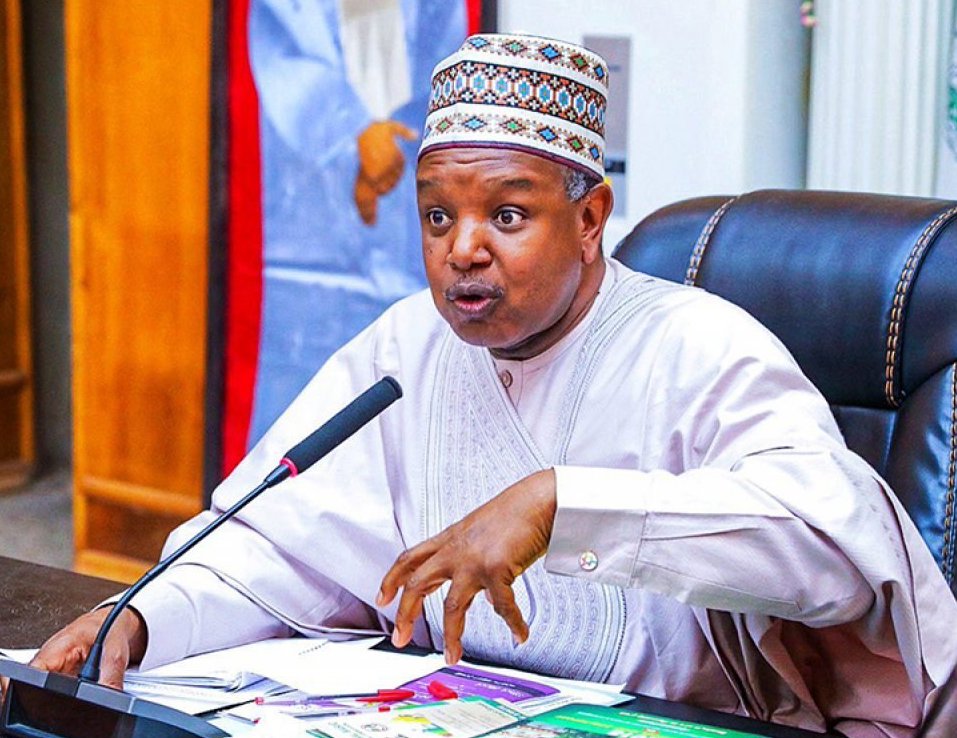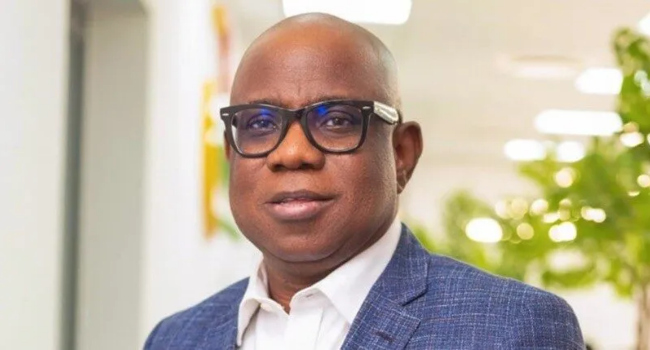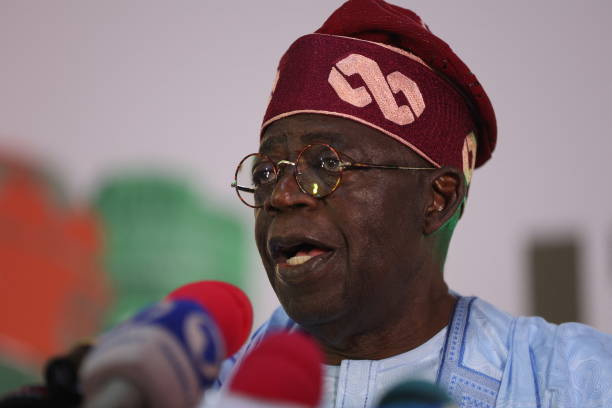Nigeria wants to refine all its crude oil at home. Yes, all of it. No more sending it abroad and then buying it back at ridiculous prices. President Bola Ahmed Tinubu is aiming high — and if his plans go well, this oil-rich nation might just stop acting like someone who sells yam to the market but has nothing to eat at home.
At a major regional conference held in Abuja on Wednesday, Minister of Budget and Economic Planning, Senator Abubakar Bagudu, shared Tinubu’s vision loud and clear: Nigeria must stop exporting raw crude and start refining it fully, right here on our soil.
The message came on the closing day of the Global Commodity Insights Conference on West African Refined Fuel Market, hosted by the Nigerian Midstream and Downstream Petroleum Regulatory Authority (NMDPRA), in partnership with S&P Global. It wasn’t just another “talk-shop” — serious decisions were made, and bold goals were set.
For years, Nigeria’s oil and gas industry has been a classic case of potential without performance. Despite being one of Africa’s biggest crude producers, the country has relied heavily on fuel imports due to its struggling or underused refineries. A real irony, considering we literally sit on barrels of black gold.
But now, the government says it’s done playing small. According to Bagudu, Tinubu’s economic reforms are designed to end decades of under-investment in the sector and to bring in the right kind of money and management.
“We are no longer tolerating distortions or excuses,” Bagudu declared. “The ambition is to refine all that we produce in Nigeria and maybe even some from our West African neighbors.”
If that dream sounds ambitious, that’s because it is. But Bagudu insists it’s doable — especially with growing regional cooperation and private sector involvement. Think Dangote’s mega refinery, think new modular refineries, and think smarter policies.
A President Who Doesn’t Interfere? That’s New
NMDPRA boss Farouk Ahmed also praised Tinubu’s leadership style — noting that the president has stayed out of their regulatory business and allowed them to do the right thing, without unnecessary political interference.
“The president has never objected to what we’re doing,” Ahmed said. “That gives us the confidence to insist on best practices.”
He admitted that some industry players have grumbled over new regulations (naturally, nobody likes tough rules). But Ahmed was firm: rules must be followed if Nigeria is to grow into a regional fuel giant. “No more business-as-usual,” he said.
West Africa: From Importer to Trading Hub?
The conference wasn’t just about Nigeria. It also brought together representatives from across West Africa, all pushing for a future where the region becomes a petroleum products trading hub.
Prof. Zainab Gobir, NMDPRA’s Executive Director of Economic Regulation and Strategic Planning, laid out the vision — one where refineries in the region run smoothly, where regulatory policies are aligned, and where refined products are priced transparently across borders.
To make that happen, West African countries agreed to a few tough decisions:
-
All refineries must operate at optimal levels — no sleeping on duty.
-
Any refinery project that fails to perform will face steep penalties.
-
A regional pricing benchmark for petrol, diesel, LPG, and aviation fuel will be created.
-
Financial institutions will step up to close infrastructure gaps.
Gobir noted that major backers like Afrexim Bank, the African Finance Corporation, and the African Energy Bank would be encouraged to help finance the transformation.
“The demand is there. What we need now is supply, discipline, and delivery,” she said.
Some Nigerians might be rolling their eyes, thinking, “We’ve heard this before.” And they wouldn’t be wrong. Over the years, plenty of governments have promised to fix the oil sector, but few have succeeded.
Still, something feels different this time. There’s a clearer structure, more regional coordination, and a firmer resolve to hold both local and foreign players accountable.
And perhaps, just perhaps, with the right combination of political will, investor confidence, and regulatory backbone, Nigeria might finally stop being the butt of that old joke: “A country that sells crude oil but can’t fuel its own cars.”
In typical Nigerian fashion, one conference participant quipped: “If we refine it all, maybe we can finally stop queueing at petrol stations and start queueing at fuel-export counters.” Now that’s the kind of traffic jam we wouldn’t mind.
BOTTOM LINE: Tinubu has set his sights on a fully refined future — one where Nigeria not only feeds itself but supplies others. The road ahead won’t be smooth, but at least this time, we’ve started the engine.





